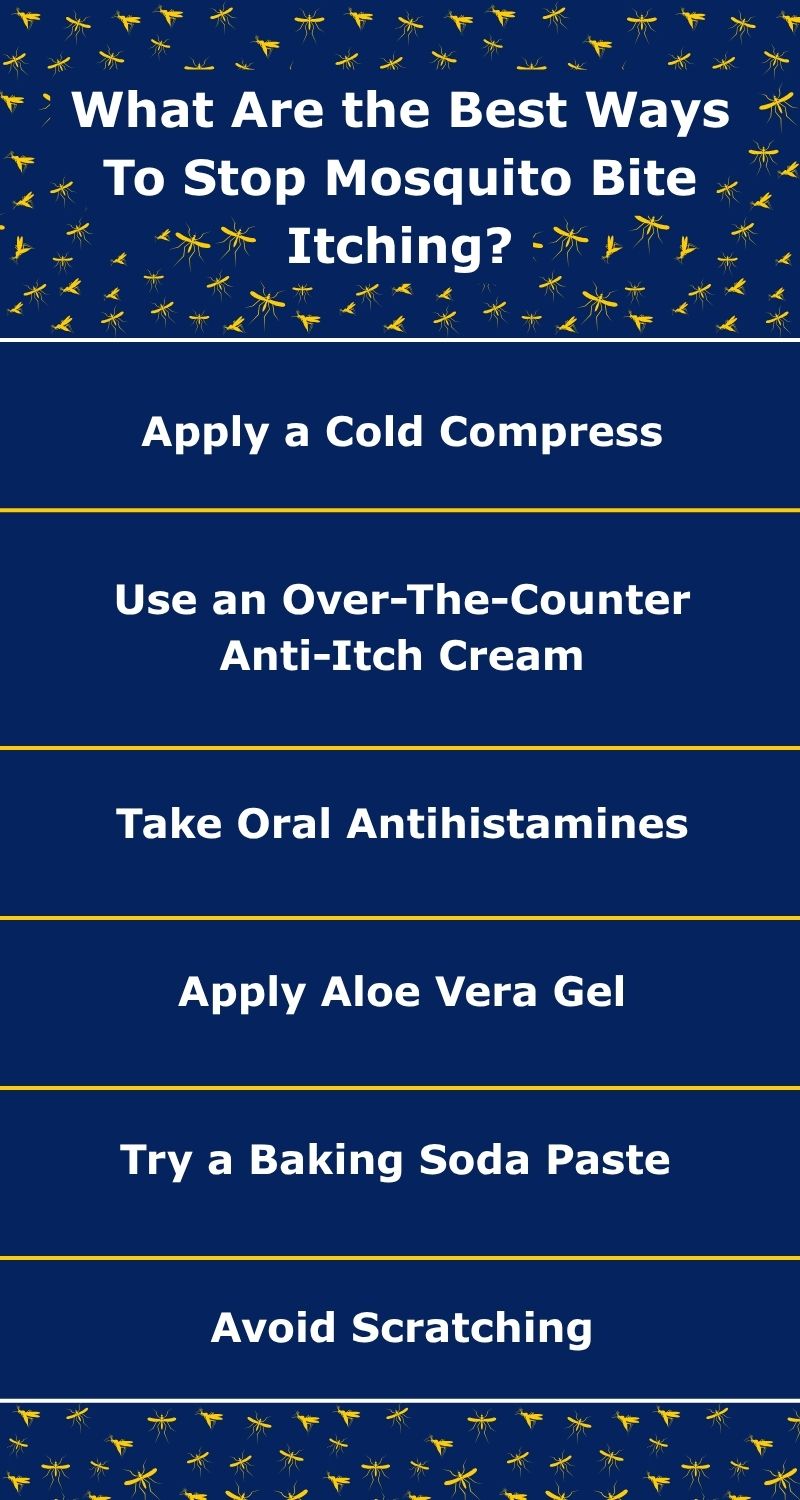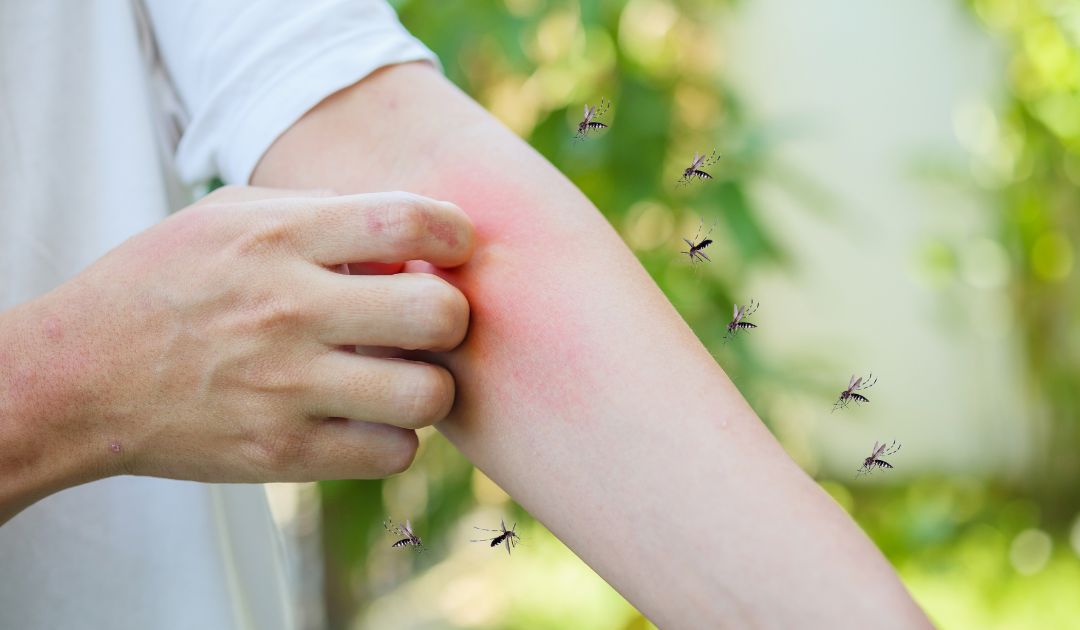Anyone who’s spent time outside during a Tennessee summer knows the discomfort a mosquito bite can bring. That familiar itch can seem mild at first but turn into an aggravating distraction that lasts for days. But have you ever wondered why mosquito bites itch in the first place? And more importantly, what can you do to prevent them?
Understanding the science behind mosquito bites helps explain the body’s reaction. It reinforces why professional yard treatments are worth it – especially in regions like White House, where mosquito populations thrive in warm, humid conditions. If you haven’t scheduled an appointment for a pest control inspection with Smash Pest Control yet, click here to get started!
Do Mosquito Bites Always Itch?
In most cases, mosquito bites do cause itching and other types of skin discomfort. The itch from a mosquito bite is caused by your body’s immune response to proteins in the mosquito’s saliva. When a mosquito bites, it injects a small amount of saliva into your skin to keep your blood from clotting. Your body sees this as an invasion and releases histamines to fight it, which triggers itching, redness, and swelling. That said, not everyone reacts the same way. Here are a few exceptions:
- Young children and babies. Their immune systems may not react strongly at first, meaning little or no itch.
- Frequent exposure. People who are bitten often may build up a tolerance and experience reduced itching over time.
- Weakened immune systems. Individuals with compromised immunity might not mount a strong enough response to produce a noticeable itch.
- Allergic reactions. On the other end of the spectrum, some people may develop exaggerated responses, including intense itching, blistering, or hives.
In rare cases, someone may not itch at all. However, that persistent maddening sensation is a familiar summer frustration for most of us.
How Long Do Mosquito Bite Itches Typically Last?
In most cases, the itching from a mosquito bite begins within minutes of being bitten and may linger for a few hours to several days. The intensity and duration of the itch depend on individual sensitivity, the body’s immune response, and how much the bite is scratched. Typically, the swelling and redness appear quickly, and the itching peaks within the first day or so. Most bites start to fade within two to three days, although some mild itching may persist for as long as a week.
In instances where the bite is scratched excessively, the irritation can last longer and may even become infected, leading to scabbing or more noticeable skin reactions. Individuals with stronger allergic responses may experience swelling or discomfort for longer periods. On the contrary, people who have developed a tolerance might find their bites resolve more quickly. If any bite remains painful, warm to the touch, or swollen beyond a few days, it’s a good idea to seek medical advice to rule out secondary infections.
How Many Times Can a Mosquito Bite Before It Dies?
Unlike bees, mosquitoes don’t die after biting. A single female mosquito – the only type that bites – can actually feed multiple times throughout her short life. Female mosquitoes need the proteins in the blood to develop their eggs, so after each blood meal, they rest for a couple of days while their bodies process the nutrients and produce eggs. Once the eggs are laid, the mosquito is capable of biting again and repeating the cycle.
Depending on the species and environmental conditions, a mosquito can live for a few days up to several weeks, and during that time, she can bite several hosts. A single mosquito may bite multiple people in one outing or revisit the same host more than once. This repeated biting behavior causes more irritation and also increases the risk of disease transmission, which is why consistent mosquito control in your yard is critical to reducing their impact and reproductive success.
What Are the Best Ways To Stop Mosquito Bite Itching?
If you skipped repellents and have already been bitten, the goal is to ease discomfort while preventing further irritation or infection. Fortunately, there are several proven ways to calm the itch and help bites heal faster:
- Apply a cold compress. Ice or a chilled damp cloth can numb the area and reduce inflammation.
- Use an over-the-counter anti-itch cream. Products containing hydrocortisone, calamine, or antihistamines can relieve itching and swelling.
- Take oral antihistamines. These can help block the body’s allergic response, especially for people who experience multiple bites at once.
- Apply aloe vera gel. Naturally soothing and anti-inflammatory, aloe vera can ease irritation and support skin healing.
- Try a baking soda paste. Mix baking soda with water to create a thick paste, then apply it to the bite for quick relief.
- Avoid scratching. This is easier said than done, but scratching can make itching worse, introduce bacteria, and prolong the healing process.

Reclaim Your Outdoor Space With Smash Pest Control
Scratching bites should never be part of your summer plans. Smash Pest Control offers targeted, effective mosquito yard treatments to help reduce mosquito populations and prevent new infestations around your home in White House and surrounding areas. Don’t let mosquitoes ruin your time outside, schedule your mosquito control service today and enjoy a more comfortable, bite-free summer season!


Recent Comments